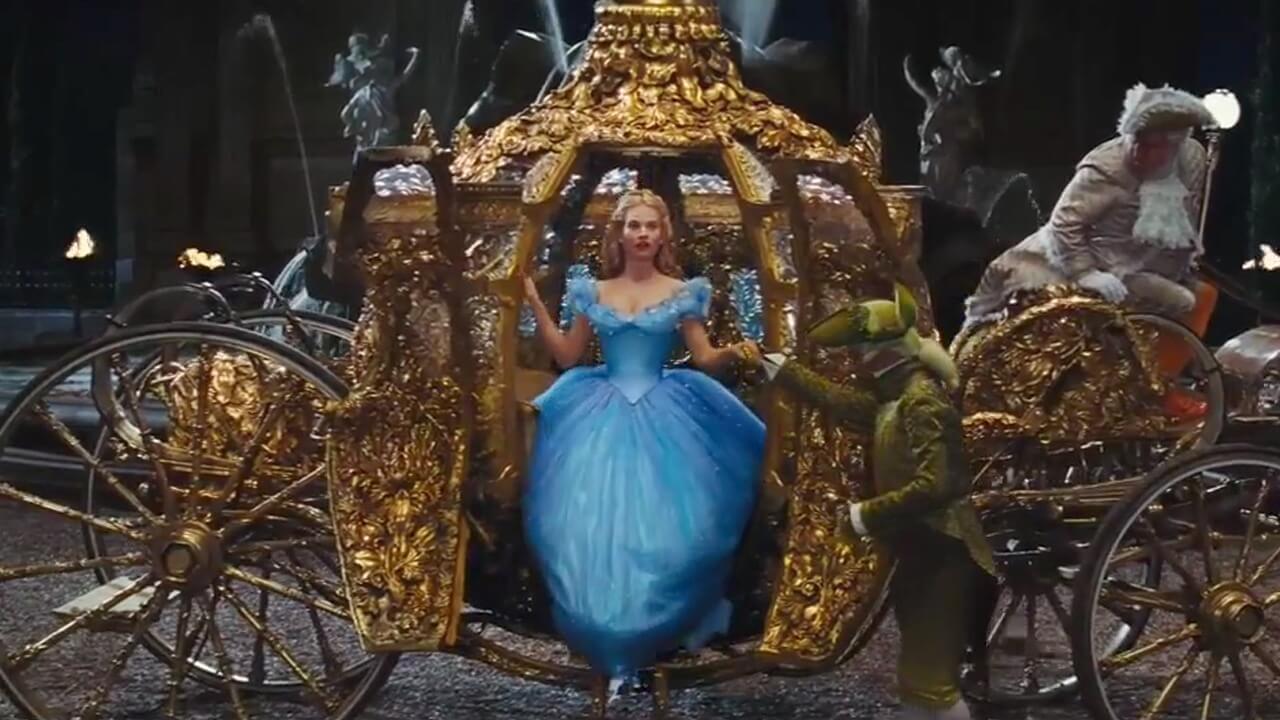The live-action “Cinderella” is further evidence of the lengths
major studios are willing to go to avoid coming up with new ideas and to see
how much they can recycle their past before completely losing the good will of
the audience. Director Kenneth Branagh, who was once known for his dynamic
Shakespeare film adaptions, first collaborated with Disney with their
successful adaptation of Marvel’s “Thor,” and when you think about it, Disney’s
fairytale princesses relate closely to the iconicism and comfortable familiarity
of the comic book superhero genre. With that in mind, and with the relative
success of this functional remake, we can expect more of these to come.
The story here follows most of the beats laid out in the 1950
animated classic. Ella (Lily James) is the warm and forgiving daughter of a
wealthy aristocrat and who then is tragically left without a mother and father and
forced to live as the servant of her evil stepmother (Cate Blanchett) and her
obnoxious and self-absorbed stepsisters (Sophie McShera and Holliday Grainger).
What comes after? You guessed it; a prince, a ball, a fairy godmother, glass
slippers and a pumpkin-shaped stagecoach.
Chris Weitz’s screenplay front-loads the original fairytale
with the backstory of Cinderella’s biological mother and father, their tragic
passing and the deteriorating relationship between her and her lawful step-family.
Some of this is mildly interesting—one might wonder why Cinderella’s father
would ever end up with an evil stepmother in the first place, and Blanchett is given a great screen
entrance as the bloodless vamp—but much of this narrative padding is tedious,
plot-stalling and treated with too much gauzy romanticism to register as
effective tragedy.
Branagh’s
strengths as a storyteller are compromised by the prime objective of this adaptation,
as it only exists to conjure the nostalgia of Disney’s once-relevant legacy in animation, and,
ironically enough, this film expounds the very reasons why animation is given tonal
allowances that simply don’t work in live action. The first problem here is that
Cinderella is inherently a boring character and Lily James doesn't do much with
the paper-thin persona as written to bring her to life. With catchy
songs, talking mice and an exaggerated environment an animated feature can skate by on
iconography alone, but once you throw in real actors and close-ups and throw
out the musical sequences, the film is forced to create a believable emotional space,
and this version of “Cinderella” does not.
Blanchett
eats up the scenery around her and leans into the film’s camp value like a
professional, but the romantic scenes between Cinderella and the Prince
(Richard Madden) are painfully unsupported and the inclusion of CGI birds and
mice distract more than they endear. Occasionally, when Branagh is allowed
focus in on a scene without pandering to fan-service and gives his actors some
intimacy to express themselves, a hint of depth appears, but these rare moments
are squandered on obtrusive special effects and an aesthetic slickness that
makes the majority of the film look like an overproduced Tide commercial.
Young girls are going to enjoy this and no review will stop the monolithic cynicism of these kinds of uninspired remakes. Unlike Tim Burton’s misbegotten “Alice in Wonderland” or the mish-mash mythology of “Snow White and the Huntsman,” this fairytale retelling refuses to risk alienating audiences with a lofty post-modern interpretation. It’s not a particularly memorable or creative venture but it isn't offensive or challenging either, but what is frustrating is its defiant dedication to triviality.
Grade: D+
Young girls are going to enjoy this and no review will stop the monolithic cynicism of these kinds of uninspired remakes. Unlike Tim Burton’s misbegotten “Alice in Wonderland” or the mish-mash mythology of “Snow White and the Huntsman,” this fairytale retelling refuses to risk alienating audiences with a lofty post-modern interpretation. It’s not a particularly memorable or creative venture but it isn't offensive or challenging either, but what is frustrating is its defiant dedication to triviality.
Grade: D+
Originally Published in the Idaho State Journal/March-2015




